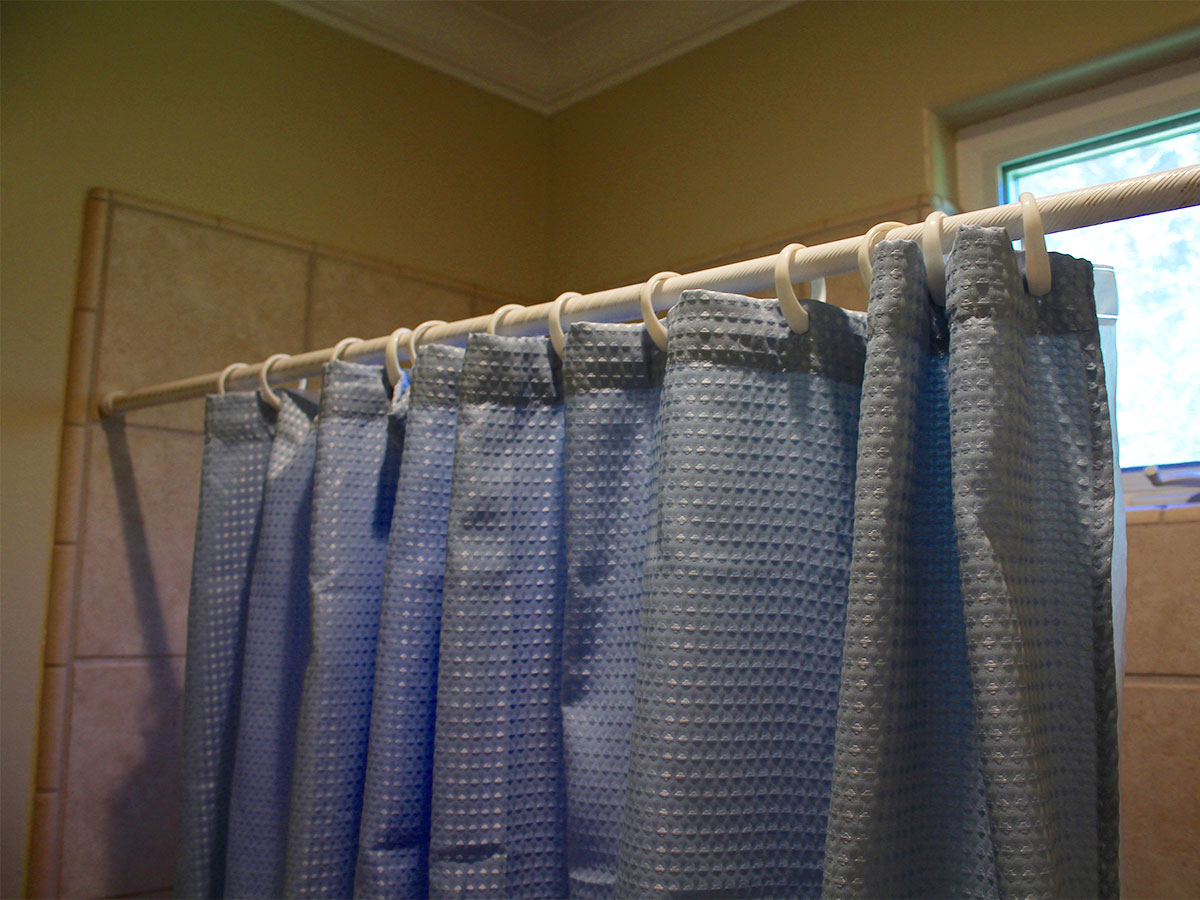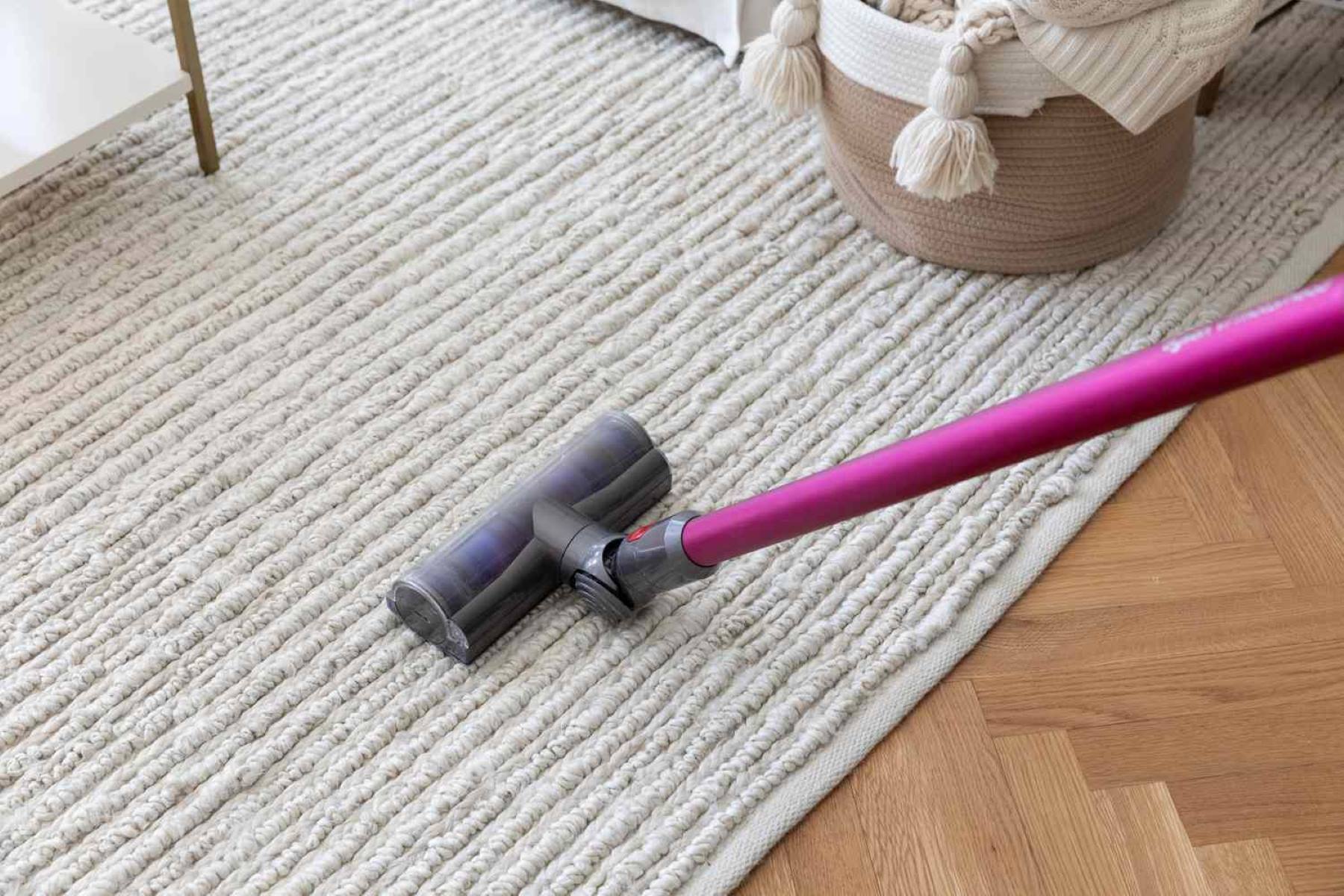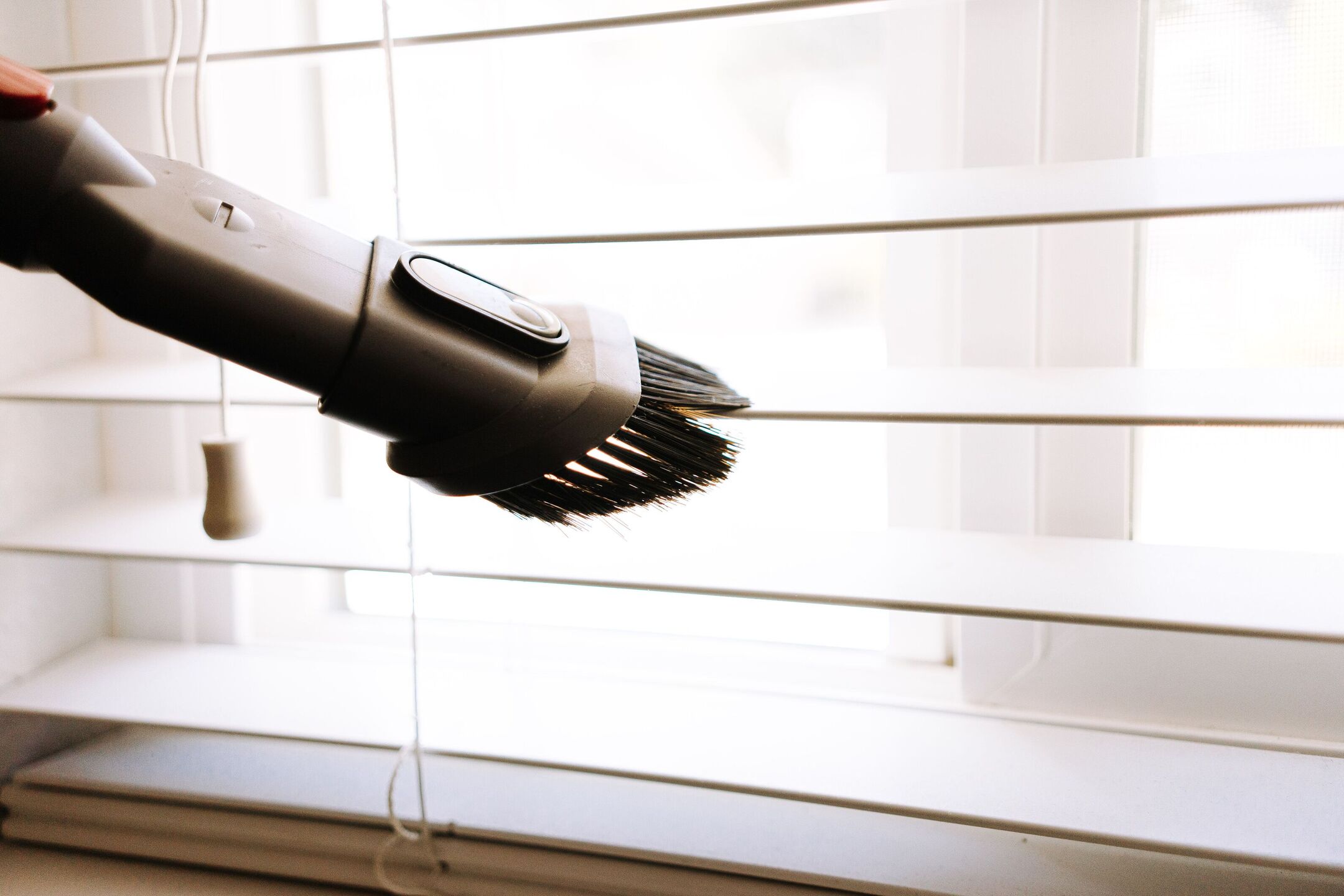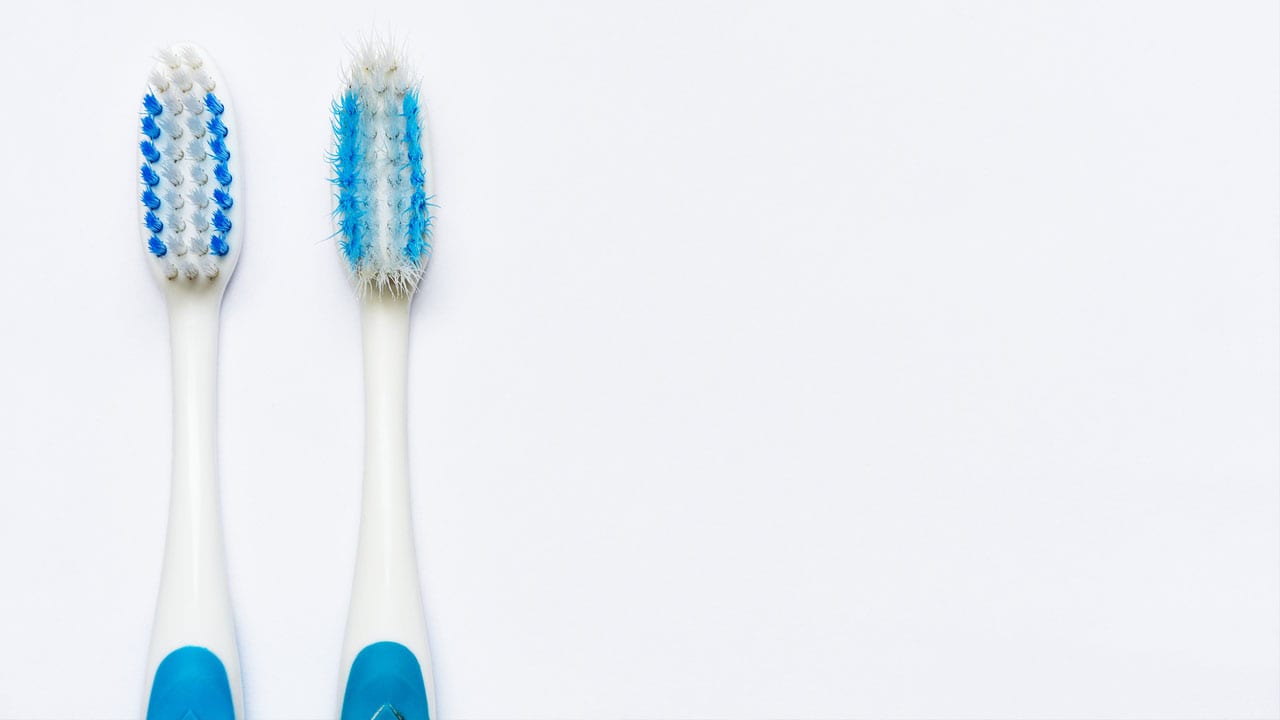Home>Interior Design>How Often Should You Change Your Bedsheets? Experts Explain


Interior Design
How Often Should You Change Your Bedsheets? Experts Explain
Modified: December 7, 2023
Discover how often interior design experts recommend changing your bedsheets for a clean and refreshing bedroom. Find out the secrets to maintaining a cozy and stylish sleep sanctuary!
(Many of the links in this article redirect to a specific reviewed product. Your purchase of these products through affiliate links helps to generate commission for Storables.com, at no extra cost. Learn more)
Introduction
When it comes to maintaining a clean and comfortable sleeping environment, one often overlooked aspect is the regular changing of bedsheets. Though it may seem like a mundane chore, regularly updating your bedsheets plays a significant role in promoting good hygiene and enhancing overall sleep quality. But how often should you change your bedsheets? Let’s delve into the topic to find out.
Our bedsheets are exposed to various factors that can contribute to the accumulation of dirt, sweat, body oils, and dead skin cells over time. This buildup not only affects the cleanliness of our beds but can also harbor allergens, dust mites, and other microorganisms that can exacerbate allergies and cause skin irritation. Regularly changing your bedsheets helps remove these agents, ensuring a healthier and more hygienic sleeping environment.
The frequency at which you should change your bedsheets depends on several factors, including personal preference, lifestyle, and individual circumstances. While there is no one-size-fits-all answer to how often you should change your bedsheets, experts recommend establishing a regular routine to maintain cleanliness and promote better sleep.
In the following sections, we will explore the different factors that influence how often you should change your bedsheets, as well as expert recommendations and signs that indicate it’s time for a change. Additionally, we will provide some useful tips on how to keep your bedsheets clean and fresh for longer.
Key Takeaways:
- Regularly changing your bedsheets is crucial for maintaining a clean and hygienic sleeping environment, promoting better sleep quality and overall well-being.
- Factors such as personal hygiene preferences, climate, and material choices influence how often you should change your bedsheets. Expert recommendations suggest a general guideline of changing them once a week.
Why is it important to change your bedsheets?
Changing your bedsheets regularly is essential for a variety of reasons. Let’s explore the importance of maintaining clean and fresh bedsheets:
1. Hygiene:
Over time, our bedsheets collect sweat, body oils, dead skin cells, and even bodily fluids. This buildup becomes a breeding ground for bacteria, dust mites, and allergens. Regularly changing your bedsheets helps eliminate these contaminants, promoting better overall hygiene and reducing the risk of skin irritation and allergies.
2. Odor Control:
When we sleep, our bodies release sweat and natural oils that can leave a lingering odor on our bedsheets. By changing your bedsheets regularly, you can prevent unpleasant smells from accumulating and ensure a fresh and inviting sleeping environment.
3. Allergen Reduction:
If you suffer from allergies or asthma, maintaining clean bedsheets is crucial. Dust mites, pet dander, and pollen can find their way into the fabric of your sheets, triggering allergic reactions and worsening respiratory symptoms. Regularly washing and changing your bedsheets can help minimize exposure to these allergens and provide relief from allergy symptoms.
Read more: How Often Should You Change Your Mattress?
4. Skin Health:
Keeping your bedsheets clean can have a positive impact on your skin health. Accumulated dirt, oils, and bacteria can transfer back onto your skin when you sleep, potentially causing clogged pores, acne breakouts, and skin irritations. Regularly changing your bedsheets helps promote clearer and healthier skin.
5. Better Sleep Quality:
Having clean and fresh bedsheets can contribute to a more comfortable and restful sleep experience. The feeling of slipping into clean, crisp sheets at the end of a long day can enhance relaxation and promote a sense of well-being. The absence of dirt, debris, and allergens can also help minimize sleep disruptions and improve sleep quality.
By understanding the importance of changing your bedsheets, you can prioritize this simple yet significant task and reap the numerous benefits it offers. Next, we’ll explore the factors that influence how often you should change your bedsheets.
Factors that influence how often you should change your bedsheets
The frequency at which you should change your bedsheets can vary depending on several factors. Let’s explore some of the key factors that influence how often you should consider updating your bedsheets:
1. Personal Hygiene Preferences:
Each individual has their own personal hygiene standards and preferences. Some people may feel the need to change their bedsheets more frequently due to factors such as excessive sweating, oily skin, or specific body odors. It’s important to consider your personal hygiene needs when determining how often to change your bedsheets.
Read more: How Often Should You Change Your Carpet
2. Climate and Seasonal Variation:
The climate you live in can affect how quickly your bedsheets become dirty or sweaty. In hotter and more humid climates, bedsheets may require more frequent changing to combat sweat and moisture buildup. Additionally, seasonal variations can also impact the frequency of sheet changes. During warmer months, you may want to change your sheets more often to stay cool and fresh.
3. Bedtime Habits and Activities:
Consider your bedtime habits and activities when deciding on the frequency of sheet changes. If you enjoy eating or drinking in bed, have pets that sleep with you, or engage in activities that cause excessive sweating, it may be necessary to change your bedsheets more often to maintain cleanliness and freshness.
4. Allergies and Respiratory Conditions:
If you or a household member suffer from allergies or respiratory conditions, changing your bedsheets more frequently may be necessary. Allergens such as dust mites, pollen, and pet dander can accumulate on bedsheets and exacerbate symptoms, so it’s important to keep them clean to minimize allergen exposure.
5. Fabric and Material:
The type of fabric and material used for your bedsheets can also impact how often they should be changed. Natural fibers like cotton or linen are more breathable and can help wick away moisture, but they may need to be changed more frequently. Synthetic fabrics like polyester or microfiber may be more resistant to sweat and stains, allowing for longer intervals between changes.
It’s important to consider these factors and find a balance that suits your needs. Consulting expert recommendations can also provide valuable guidance on how often to change your bedsheets. In the next section, we’ll explore the recommendations provided by experts in the field.
Read more: How Often Should You Change Your Wardrobe
Expert recommendations for changing your bedsheets
Experts in the field of interior design and hygiene offer valuable recommendations to help determine how often you should change your bedsheets. While these recommendations can vary depending on individual factors, they provide a general guideline for maintaining cleanliness and hygiene in your bedroom:
1. Change Once a Week:
Many experts suggest changing your bedsheets once a week. This frequency strikes a balance between maintaining cleanliness and reducing the risk of accumulated sweat, dirt, and allergens. Regular weekly changes can help keep your bedsheets fresh and hygienic.
2. Increase Frequency for Specific Circumstances:
There are certain circumstances when you may need to change your bedsheets more often than once a week. For example, if you have allergies or respiratory conditions, changing your sheets at least twice a week can help minimize allergen exposure. Likewise, if you have pets that sleep on your bed or if you engage in activities that cause excessive sweating, more frequent changes may be necessary.
3. Consider Bedding Layers:
Not only should you change your sheets but also consider the other layers of bedding. Experts recommend washing and changing pillowcases at least once a week to maintain good hygiene and protect against acne-causing bacteria. Additionally, duvet covers and mattress protectors should be cleaned regularly following the manufacturer’s instructions.
Read more: How Often Should You Change Your Pillowcase?
4. Trust Your Senses:
While expert recommendations provide a general guideline, it’s important to use your senses as well. If your bedsheets start to smell, look visibly dirty, or feel uncomfortable, it’s a clear indication that it’s time for a change, even if it hasn’t been a full week since the last change.
Keep in mind that these recommendations are not set in stone, and you may need to adjust them based on your personal circumstances and preferences. Trusting your instincts and maintaining good hygiene practices are key to keeping your bedsheets clean and fresh for a comfortable night’s sleep.
In the next section, we will explore the signs that indicate it’s time to change your bedsheets, so stay tuned!
Signs that indicate it’s time to change your bedsheets
While having a regular schedule for changing your bedsheets is important, there are certain signs that indicate it’s time for an immediate change. Pay attention to these signs to ensure you maintain a clean and hygienic sleeping environment:
1. Visible Stains and Spills:
If you notice any visible stains or spills on your bedsheets, it’s a clear indication that they need to be changed. Stains can attract bacteria and harbor unpleasant odors, compromising the cleanliness and freshness of your bedding.
2. Lingering Odors:
If your bedsheets start to emit an unpleasant or musty smell even after washing, it’s a sign that they may be harboring bacteria or trapped odors. Freshly washed bedsheets should smell clean and fresh, so if they continue to have an odor, it’s time for a change.
Read more: How Often Should You Change Your Bed Sheets
3. Allergy Symptoms Flare-up:
If you or a family member experience an increase in allergy symptoms, such as sneezing, itching, or nasal congestion, it could be due to allergens accumulating on your bedsheets. Changing your sheets regularly helps reduce allergen exposure and alleviate symptoms.
4. Excessive Sweating:
If you tend to sweat excessively during sleep, your bedsheets may become damp and uncomfortable. Sweat can also attract bacteria, causing unpleasant odors. Consider changing your sheets more frequently to ensure comfort and maintain hygiene.
5. Skin Irritation or Breakouts:
If you notice skin irritation, redness, or acne breakouts after sleeping on your bedsheets, it may be a sign that they need to be changed more often. Dirty bedsheets can transfer bacteria and oils back to your skin, leading to skin issues.
6. Pets in Bed:
If you allow pets to sleep on your bed, their presence can result in fur, dirt, and allergens accumulating on your sheets. It’s a good idea to change your bedsheets more frequently if you have furry friends sharing your sleeping space.
By paying attention to these signs, you can ensure that your bedsheets are changed promptly when necessary. However, regular scheduled changes are still important to maintain overall cleanliness and hygiene. In the next section, we’ll provide some useful tips for maintaining clean and fresh bedsheets.
Read more: How Often Should You Change Mattress
Tips for maintaining clean and fresh bedsheets
Keeping your bedsheets clean and fresh is not only essential for hygiene but also for a comfortable and enjoyable sleep experience. Here are some helpful tips to help you maintain clean and fresh bedsheets:
1. Follow care instructions:
Always refer to the care instructions provided by the manufacturer for washing and drying your bedsheets. Different fabrics and materials may require specific care to maintain their quality and longevity.
2. Wash with warm water:
In most cases, washing your bedsheets with warm water is sufficient to remove dirt, oils, and bacteria. However, for particularly stubborn stains or heavily soiled sheets, you may need to use hot water. Avoid using hot water for delicate fabrics or those prone to shrinking.
3. Use mild detergent:
Choose a gentle, hypoallergenic detergent to wash your bedsheets. Harsh detergents can cause colors to fade and irritate sensitive skin. Follow the recommended amount of detergent based on the load size to ensure effective cleaning.
4. Dry sheets properly:
Avoid over-drying your bedsheets as the heat can weaken the fibers and cause them to become brittle. Ideally, remove them from the dryer while they are still slightly damp and allow them to air dry completely. This helps minimize wrinkles and preserves the softness of the fabric.
5. Rotate your linen collection:
If you have multiple sets of bedsheets, rotate them regularly. This not only prolongs their lifespan but also allows you to change your sheets more frequently without having to do laundry as often. Alternate between sets to ensure that each set gets enough rest between uses.
6. Keep pets off the bed:
While it’s tempting to let your furry friends share your bed, they can bring dirt, fur, and allergens onto your sheets. If possible, create a designated sleeping space for your pets to minimize the impact on your bedsheets’ hygiene.
7. Vacuum the mattress:
Every time you change your bedsheets, take a moment to vacuum your mattress. This helps remove any loose dirt, dust, or allergens that may have settled on the surface of the mattress.
Read more: How Often Should You Change Shower Curtains
8. Store bedsheets properly:
When not in use, store your extra sets of bedsheets in a cool, dry place, away from direct sunlight. This helps maintain their freshness and prevents musty odors. Consider using storage containers or vacuum-sealed bags to protect them from dust and moisture.
By incorporating these tips into your regular bedsheet care routine, you can enjoy clean, fresh, and inviting bedsheets every time you slip into bed. Remember, maintaining the cleanliness of your bedsheets contributes to a healthier sleeping environment and a more restful sleep.
Let’s conclude our discussion on maintaining clean and fresh bedsheets.
Conclusion
Regularly changing your bedsheets is an essential part of maintaining a clean and hygienic sleeping environment. By following expert recommendations and paying attention to signs that indicate it’s time for a change, you can ensure your bedsheets remain fresh and comfortable.
Factors such as personal hygiene preferences, climate, bedtime habits, and material choices all play a role in determining how often you should change your bedsheets. It’s important to find a frequency that works for you and adjust as needed based on individual circumstances.
Expert recommendations suggest changing your bedsheets once a week as a general guideline. However, increasing the frequency for specific circumstances such as allergies, excessive sweating, or pet presence can help maintain cleanliness and minimize allergen exposure.
Signs that indicate it’s time to change your bedsheets include visible stains, lingering odors, allergy symptoms flare-ups, excessive sweating, skin irritation or breakouts, and pets in bed. Trust your senses and respond to these signs promptly to maintain a clean and fresh sleeping environment.
In addition to regular changes, following proper care instructions, using mild detergent, and drying bedsheets properly can help prolong their lifespan and ensure their cleanliness. Rotating your linen collection, keeping pets off the bed, vacuuming the mattress, and proper storage also contribute to maintaining clean and fresh bedsheets.
Remember, clean and fresh bedsheets not only promote hygiene but also improve sleep quality. The feeling of slipping into a bed with clean and inviting sheets can enhance relaxation and contribute to a restful sleep experience.
So, make changing your bedsheets a priority in your cleaning routine, and enjoy the benefits of a clean and fresh sleeping environment that promotes both your physical and mental well-being.
Frequently Asked Questions about How Often Should You Change Your Bedsheets? Experts Explain
Was this page helpful?
At Storables.com, we guarantee accurate and reliable information. Our content, validated by Expert Board Contributors, is crafted following stringent Editorial Policies. We're committed to providing you with well-researched, expert-backed insights for all your informational needs.








0 thoughts on “How Often Should You Change Your Bedsheets? Experts Explain”